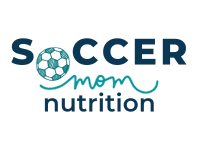Youth Athlete Nutrition Tips: Fueling Your Performance for Success
Welcome to a comprehensive athlete nutrition tips guide to optimizing your performance through proper nutrition as a youth athlete.
To excel in your sport, it’s essential to fuel your body with the right foods that support energy, endurance and recovery.
In this post, we will explore a range of nutrition tips specifically designed to enhance the performance and overall well-being of athletes.
From breakfast essentials to hydration strategies, pre- and post-game nutrition, and more, let’s delve into the world of sports nutrition and uncover the secrets to unlocking your full potential on the field or court.

Athlete nutrition tips
1. Start strong with a nourishing breakfast
Begin your day with a well-balanced breakfast to kickstart your day and provide sustained energy. Include complex carbohydrates, lean proteins and healthy fats to fuel your body and support optimal performance throughout the day.
2. Customize the performance plate method
Adjust your performance plate method based on your energy needs, which can vary depending on the intensity and duration of your activities.
Check out our post on the performance plate method to see how to fuel whether it’s game day, training day or a rest day.
3. Stay hydrated with proper fluid intake
Hydration is crucial for athletic performance. Drink fluids regularly throughout the day starting right when you wake up. Then, especially before, during and after physical activity since you’ll lose fluid and electrolytes through sweat.
Opt for water as your primary source of hydration, and for longer and high-intensity activities, consider incorporating sports drinks to replenish electrolytes and provide quick energy.
When you’re recovering after a game, recovery drinks may be an easy way to replace fluids and carbohydrates.
Also make sure you know the signs of dehydration so that you can prevent it.
4. Prioritize healthy fats
Include sources of healthy fats, such as avocados, nuts, seeds and olive oil, in your meals and snacks. Healthy fats support brain function, provide energy for low intensity exercise and aid in the absorption of fat-soluble vitamins.
5. Optimize calcium intake
Ensure you meet your calcium needs for strong bones and optimal muscle function. Incorporate calcium-rich foods like dairy products, high protein milk, fortified plant-based milk, leafy greens and tofu into your diet.
6. Set nutrition goals
Set SMART goals for yourself. These are specific nutrition goals aligned with your sports and performance objectives.
Whether it’s increasing fruit and vegetable intake, eating breakfast every morning, improving your hydration or incorporating more lean proteins, setting goals helps you stay focused on fueling your body effectively.
7. Practice mindful eating
Pay attention to your body’s hunger and fullness cues. Eat slowly, savor your food and focus on nourishing your body with nutritious choices. Mindful or intuitive eating promotes a healthy relationship with food and prevents overeating.
8. Include iron rich foods
Iron is important for athletes since it is responsible for delivering oxygen to your muscles and supporting energy production. Consume iron rich foods such as lean meats, poultry, fish, legumes, spinach and fortified cereals to meet your iron needs.
9. Emphasize whole foods
Prioritize whole foods over heavily processed options when you can. Whole foods provide a wider range of nutrients, fiber and antioxidants.
Choose whole grains, fresh fruits and vegetables, lean proteins to fuel your body optimally.
10. Practice proper food safety
Learn and follow proper food handling and storage practices to prevent foodborne illnesses. Wash your hands before and after meals, store perishable foods at appropriate temperatures and avoid cross-contamination.
11. Customize snacks for energy needs
Tailor your snacks based on your activity level and energy requirements. Opt for balanced snacks that combine carbohydrates and protein to fuel your performance and aid in recovery.
Check out our posts on half time snacks, pre game snacks and what to have for a snack after a game.
12. Prioritize sleep
Don’t overlook the importance of quality sleep in your athletic routine. Aim for adequate rest to support recovery, muscle growth and overall well-being.
Set up good sleep routines and consider eating a late evening snack especially the night before a game when you need to ensure your energy stores are topped off.
13. Embrace meal prep and planning
Take control of your nutrition by incorporating meal prep and planning into your routine. Set aside dedicated time each week to plan your meals and snacks, and prepare them in advance.
This allows you to have nutritious foods readily available when you need them, especially during busy training schedules or game days.
14. Pack nutrient filled snacks
As a youth athlete, it’s essential to have nutrient-packed snacks on hand for quick refueling during practices, games or tournaments.
Prepare a variety of portable snacks that combine carbohydrates, protein, and healthy fats to provide sustained energy and aid in recovery.
Conclusion
Congratulations on equipping yourself with these valuable nutrition tips! By applying these guidelines to your daily routine, you are taking important steps towards optimizing your performance and achieving success.
Remember, fueling your body with nutritious foods, staying hydrated and prioritizing recovery are all essential components of a well-rounded sports nutrition plan.
Consult with a registered dietitian who specializes in sports nutrition for personalized guidance that aligns with your unique needs.
With dedication, perseverance and the power of proper nutrition, you have the potential to unlock your full athletic potential and excel in your chosen sport.
Best of luck on your journey to greatness!
Stephanie Magill, MS, RD, CD, FAND has over 22 years of experience in public health and nutrition. As a performance registered dietitian nutritionist, Stephanie specializes in sports nutrition and provides simple and actionable information so that athletes can be well fueled for high performance on and off the field. Stephanie has a Master’s Degree in Nutrition and is a Fellow of the Academy of Nutrition and Dietetics.

